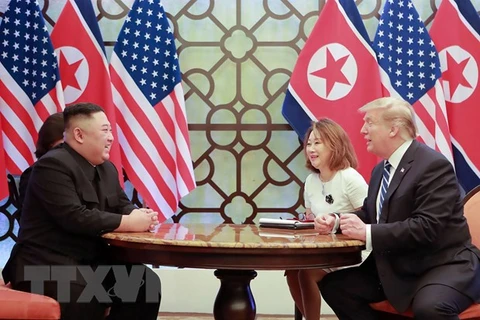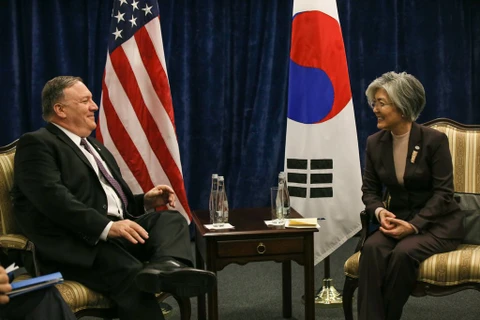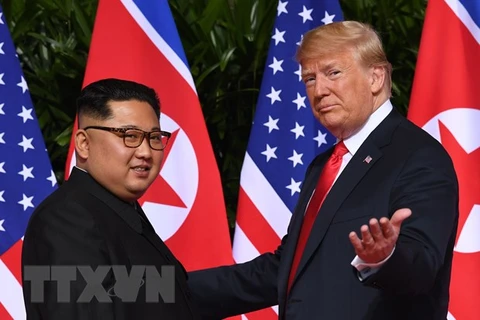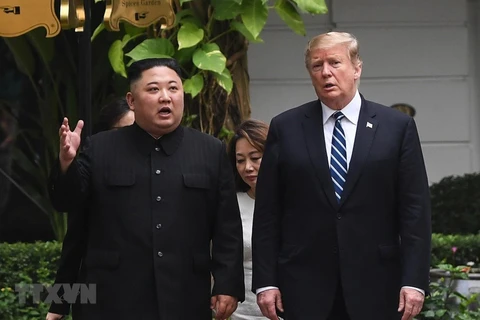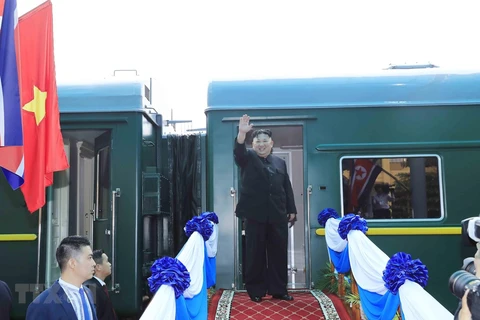Seoul (VNA) – Associate Professor Sandip Kumar Mishra at Jawaharlal Nehru University, New Delhi, India recently gave positive assessments on the DPRK-USA Hanoi Summit Vietnam, which took place on February 27-28.
In an article posted on The Korea Times newspaper of the Republic of Korea, the Indian scholar said that although US President Donald Trump and the DPRK leader Kim Jong-un failed to reach an agreement after the summit, it is important to underline some positives from the meeting.
First, another summit between the US and the DPRK within eight months of the first summit in Singapore was a clear indication that both parties have been trying to resolve the issue. Amid many important happenings, such as the US-China trade war, and India-Pakistan tension, US President Trump went ahead with the scheduled meeting must be appreciated.
Second, the Hanoi summit is also better in terms of the extensive dialogue which both countries had at the highest level. Both leaders spent several hours over the last two days in different ways talking to each other. It would have definitely led each other to know about their respective positions and preferences. It is important for any deal in the future that both parties should have more exchanges and the summit provided one such platform.
Third, it also must be underlined that it is mature on the part of both countries to depart from the summit in Hanoi with not too bitter words about each other.
Fourth, the absence of a joint declaration also means that both countries have reached the core of the problem and it must be understood that it is not going to be easy going forward.
Fifth, resolution of the DPRK nuclear and missile programmes could be achieved only through building trust between the US and the DPRK and as mentioned by US President Trump in the press conference after his talks with the DPRK leader, postponement of a deal is better than a bad deal.
It could also be added that a postponement of a deal is also better than having a deal which is not being followed through on and a deal which accompanies lack of trust between the parties, he noted.-VNA
In an article posted on The Korea Times newspaper of the Republic of Korea, the Indian scholar said that although US President Donald Trump and the DPRK leader Kim Jong-un failed to reach an agreement after the summit, it is important to underline some positives from the meeting.
First, another summit between the US and the DPRK within eight months of the first summit in Singapore was a clear indication that both parties have been trying to resolve the issue. Amid many important happenings, such as the US-China trade war, and India-Pakistan tension, US President Trump went ahead with the scheduled meeting must be appreciated.
Second, the Hanoi summit is also better in terms of the extensive dialogue which both countries had at the highest level. Both leaders spent several hours over the last two days in different ways talking to each other. It would have definitely led each other to know about their respective positions and preferences. It is important for any deal in the future that both parties should have more exchanges and the summit provided one such platform.
Third, it also must be underlined that it is mature on the part of both countries to depart from the summit in Hanoi with not too bitter words about each other.
Fourth, the absence of a joint declaration also means that both countries have reached the core of the problem and it must be understood that it is not going to be easy going forward.
Fifth, resolution of the DPRK nuclear and missile programmes could be achieved only through building trust between the US and the DPRK and as mentioned by US President Trump in the press conference after his talks with the DPRK leader, postponement of a deal is better than a bad deal.
It could also be added that a postponement of a deal is also better than having a deal which is not being followed through on and a deal which accompanies lack of trust between the parties, he noted.-VNA
VNA

